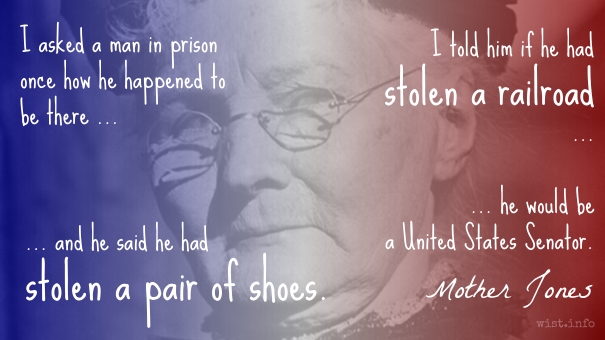There nothing so sacred that money cannot corrupt it, and nothing so well defended that money cannot over throw it.
[Nihil esse tam sanctum quod non violari, nihil tam munitum quod non expugnari pecunia possit.]
Marcus Tullius Cicero (106-43 BC) Roman orator, statesman, philosopher
In Verrem [Against Verres; Verrine Orations], Action 1, ch. 2 / sec. 4 (1.2.4) (70 BC) [tr. Berry (2006)]
(Source)
Boast by Caius Verres (or so Cicero alleges).
Various translations vary as to whether this is 1.2.4 (which I have chosen) or 1.1.4 (as noted).
(Source (Latin)). Alternate translations:Nothing is so holy that it cannot be corrupted, or so strongly fortified that it cannot be stormed by money.
[tr. Yonge (1903), 1.1.4]No sanctuary is too holy for money to defile it, no fortress too strong for money to capture it.
[tr. Greenwood (1928)]Nothing, he declares, is too sacred to be corrupted by money; nothing too strong to resist its attack.
[tr. Grant (1960)]There is nothing so sacred that it cannot be sullied, nor anything so protected that it cannot be overcome by money.
[tr. @sententiq (2017), 1.1.4]There is no sanctuary so holy that money cannot profane it, no fortress so strong that money cannot take it by storm.
[Source]
Quotations about:
robbery
Note not all quotations have been tagged, so Search may find additional quotes on this topic.
When the rich rob the poor it’s called business. When the poor fight back it’s called violence.
Mark Twain (1835-1910) American writer [pseud. of Samuel Clemens]
(Spurious)
Frequently, but incorrectly attributed to Twain, no earlier than 2015. It appears to have been an anonymous phrase coined in the Occupy Movement in 2011. See here for more information.
[The] “robbing of the poor because he is poor,” is especially the mercantile form of theft, consisting in taking advantage of a man’s necessities in order to obtain his labor or property at a reduced price. The ordinary highwayman’s opposite form of robbery — of the rich, because he is rich — does not appear to occur so often to the old merchant’s mind; probably because, being less profitable and more dangerous than the robbery of the poor, it is rarely practice by persons of discretion.
I asked a man in prison once how he happened to be there and he said he had stolen a pair of shoes. I told him if he had stolen a railroad he would be a United States Senator.
Remove justice, and what are kingdoms but gangs of criminals on a large scale?
[Remota itaque iustitia quid sunt regna nisi magna latrocinia?]Augustine of Hippo (354-430) Christian church father, philosopher, saint [b. Aurelius Augustinus]
City of God [De Civitate Dei], Book 4, ch. 4 (4.4) (AD 412-416) [tr. Bettenson (1972)]
(Source)
(Source (Latin)). Alternate translations:Set justice aside, then, and what are kingdoms but fair thievish purchases?
[tr. Healey (1610)]Justice being taken away, then, what are kingdoms but great robberies?
[tr. Dods (1871)]In the absence of justice, what is sovereignty but organized brigandage?
[tr. Zema/Walsh (1950)]And so if justice is left out, what are kingdoms except great robber bands?
[tr. Green (Loeb) (1963)]Justice removed, then, what are kingdoms but great bands of robbers?
[tr. Dyson (1998)]Remove justice, then, and what are kingdoms but large gangs of robbers?
[tr. Babcock (2012)]In the absence of justice, what is sovereignty but organized robbery?
[E.g.]







